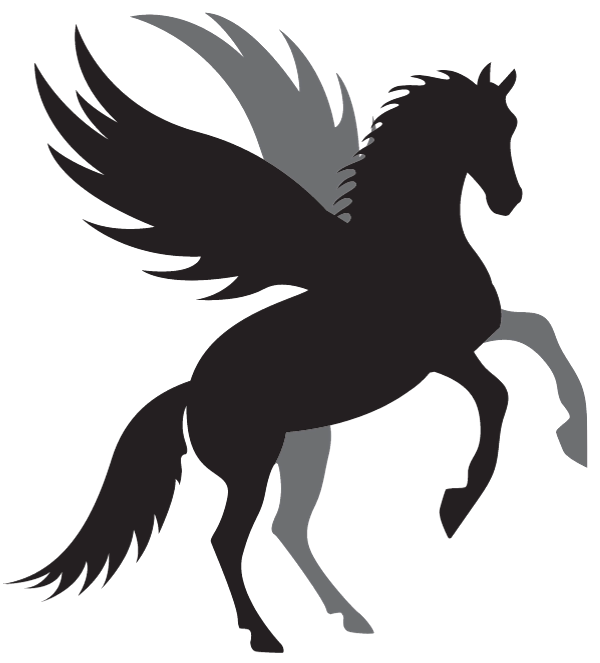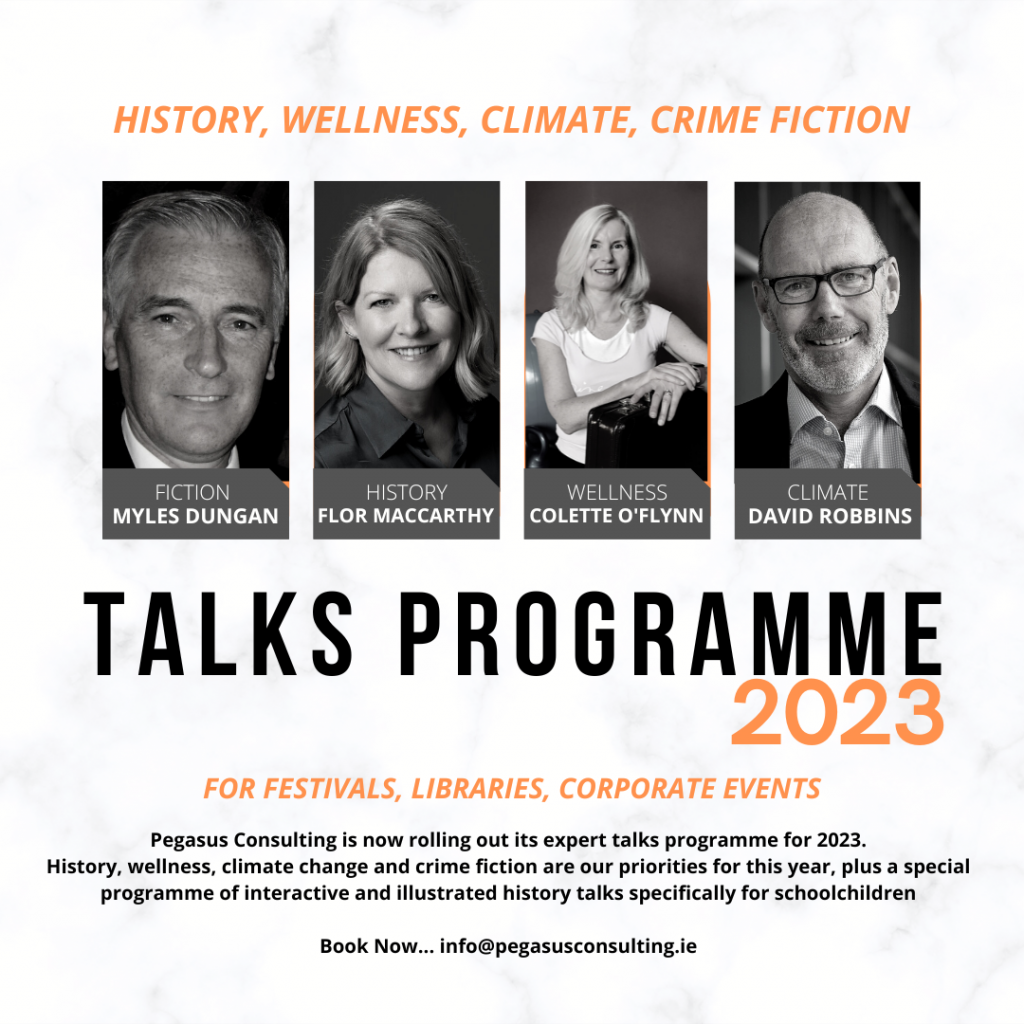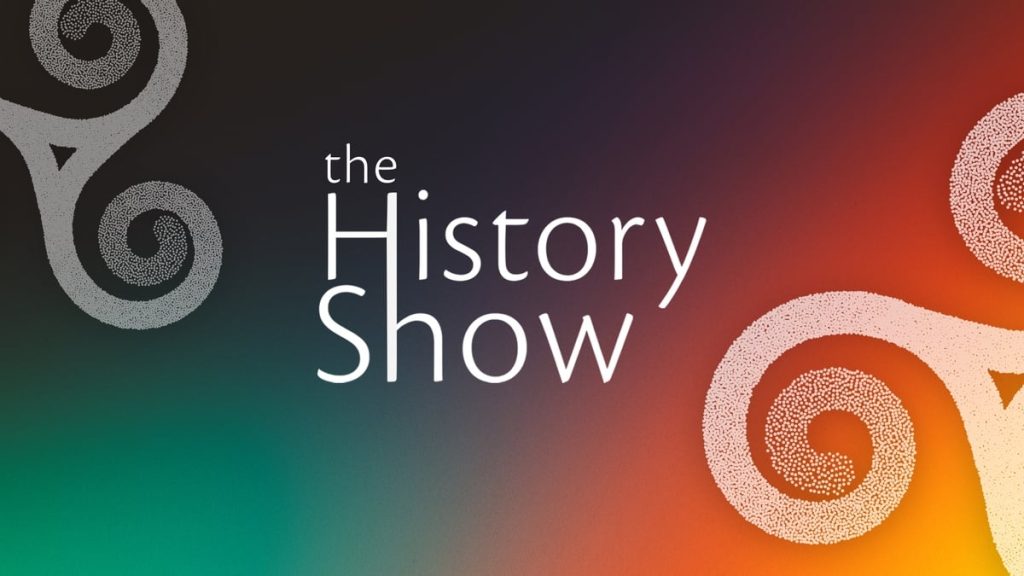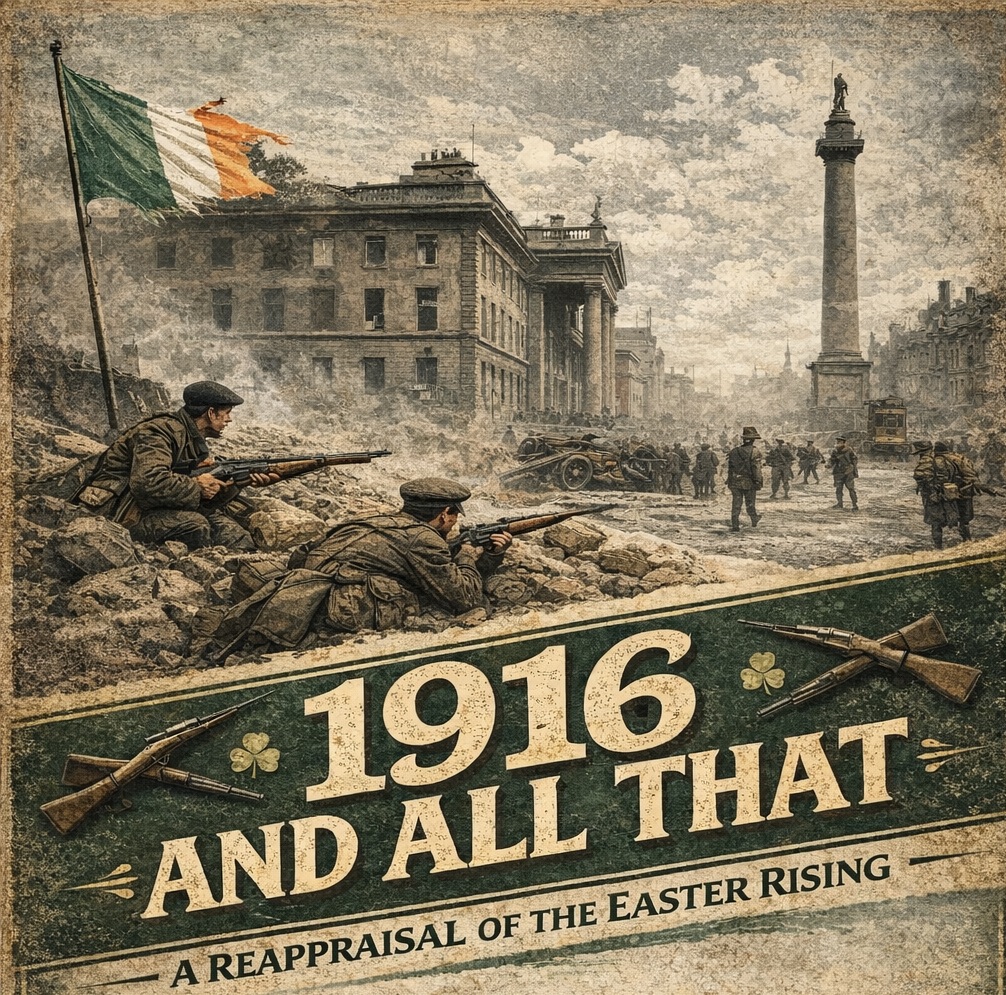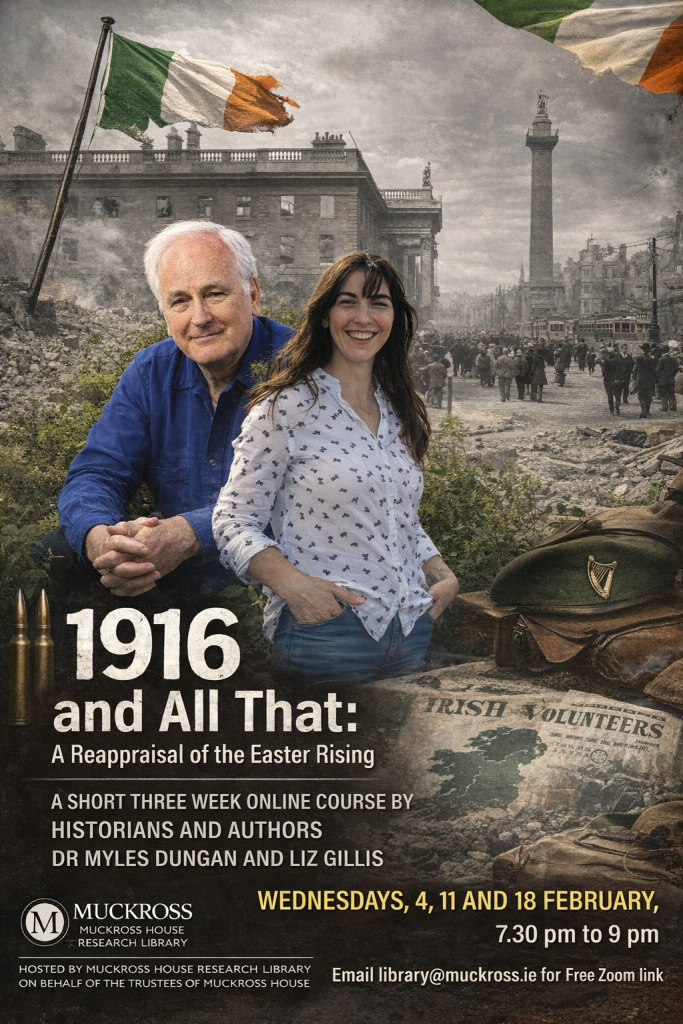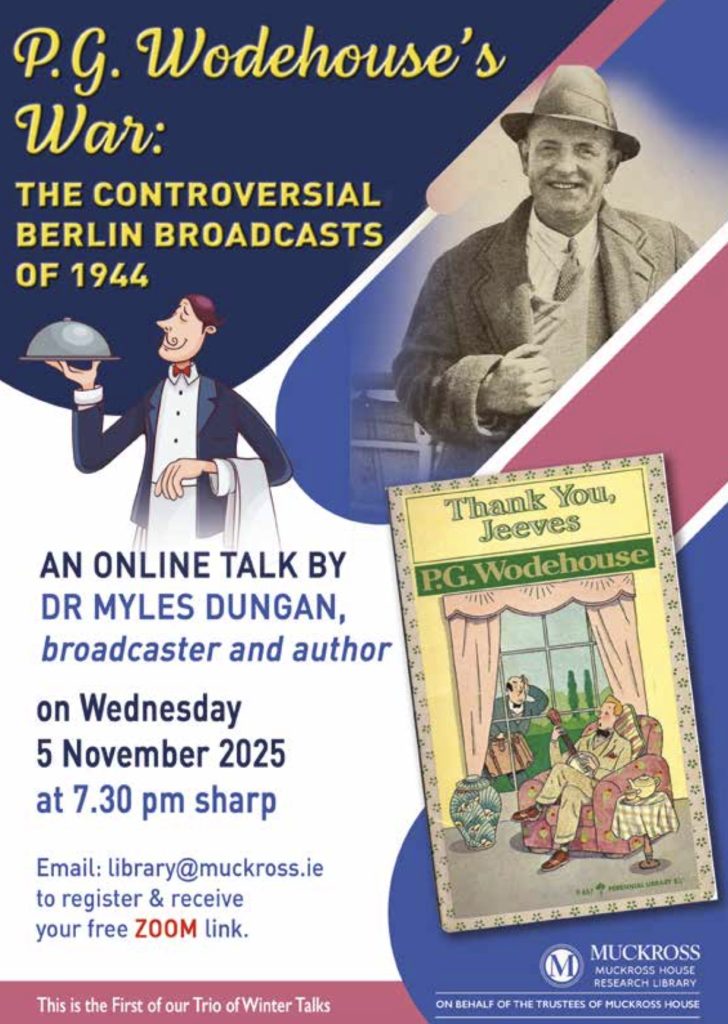The Pegasus History Roadshow is continuing to tour the country, rolling out our 2023 expert talks programme to cities and towns across Leinster, Munster and Connacht. Book now for talks on history, wellness, climate change and crime fiction with presenters, authors and experts.
Across March, April & May, our speakers visited libraries and museums across Cavan, Clare, Cork, Donegal, Dublin, Kildare, Killarney and Westmeath, with more Clare, Cork, Dublin, Wexford and Louth events coming soon. Thanks to all the library teams who have welcomed us, and to the audiences who’ve engaged so enthusiastically with our talks on climate, history, fiction and wellness.
We were particularly delighted to be part of Ennis Book Club Festival, Cork’s Seachtain na Gaeilge and the new climate change series for Muckross House, Killarney.
New talks for Spring/Summer include 50 Years: Ireland & The EU, David McCullagh’s topical lecture on Ireland, its relations with the EU and the UK – and how 50 years of membership has changed us and, of course, our new Junior History Roadshow aimed at schools.
We’re also keen to promote to the widest possible audience our new climate change programme, a series of lectures on the biggest challenge humanity has ever faced. This series, led by Dr David Robbins, director of DCU’s Centre for Climate and Society, examines basic climate change facts; how Ireland is portrayed in film; and how the media cope with the challenge of explaining the issues, including…
Dr David Robbins – Big story, bigger challenge: why the media struggle to cover climate change
David worked as an advisor to the Minister for the Environment, was assistant editor and columnist with the Irish Independent and broadcast a weekly radio column on RTÉ’s Drivetime. His talk looks at the difficulties journalists face in covering climate, and examines the levels and characteristics of Irish coverage.
Dr. Darren Clarke – Climate Change: What You Need To Know – And Why!
Darren is Assistant Professor at the School of History and Geography at DCU.
Professor Pat Brereton – From The Banshees To The Field: Ireland’s Changing Climate On Film
Pat is Professor, School of Communications, Dublin City University. He teaches a Masters in Climate Change, and is a co-Director of the Climate and Society Research Centre.

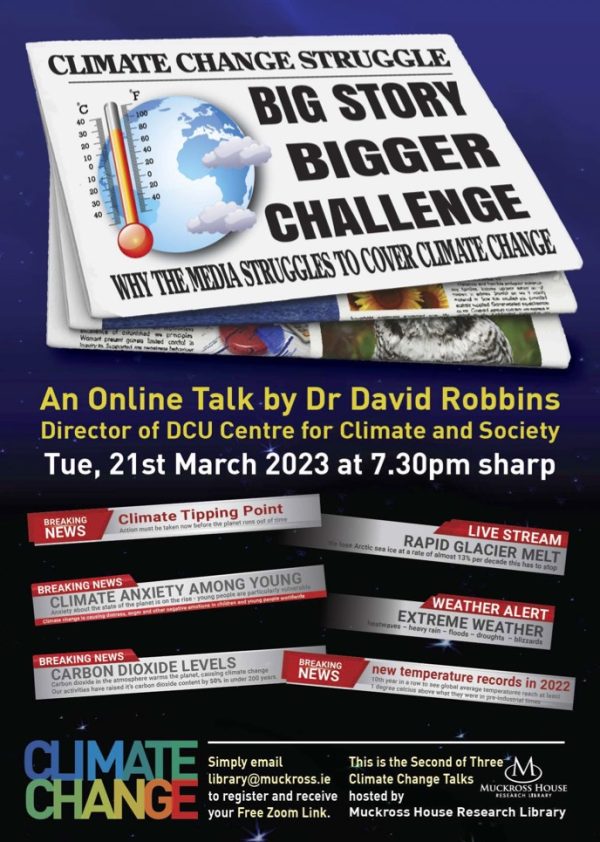
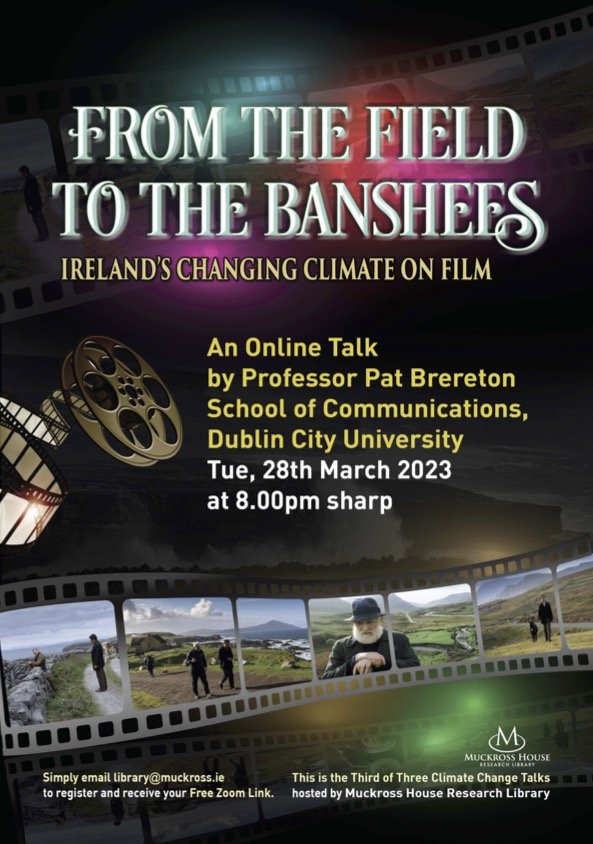
History Roadshow 2023
Ireland’s “Decade of Centenaries”, remembering 1912-1923, the most turbulent and transformative time in the nation’s history, is drawing to a close, and Pegasus is again offering libraries, museums and festivals a unique package of presentations, led by some of Ireland’s best-known historians – Dr. Myles Dungan, the presenter of The History Show; Dr. David McCullagh, the presenter of The Six-One News; and Oireachtas TV’s Flor MacCarthy, the author of The Presidents’ Letters.
This year, for the first time, the Pegasus History Roadshow will also feature a special programme of interactive and illustrated talks aimed specifically at schoolchildren, presented by leading authors and broadcasters.
Speakers
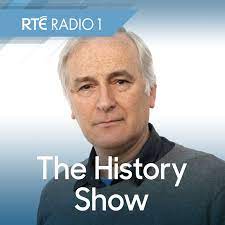
Dr. MYLES DUNGAN
Myles Dungan holds a PhD in History from Trinity College, Dublin (2012). He is the presenter of The History Show on RTÉ Radio 1, and has authored many books on 19th century Irish history and the Great War. His latest book is the best-selling Great Irish History Book (2022). Twice a Fulbright scholar, he is also Programme Director of the Hinterland Festival.
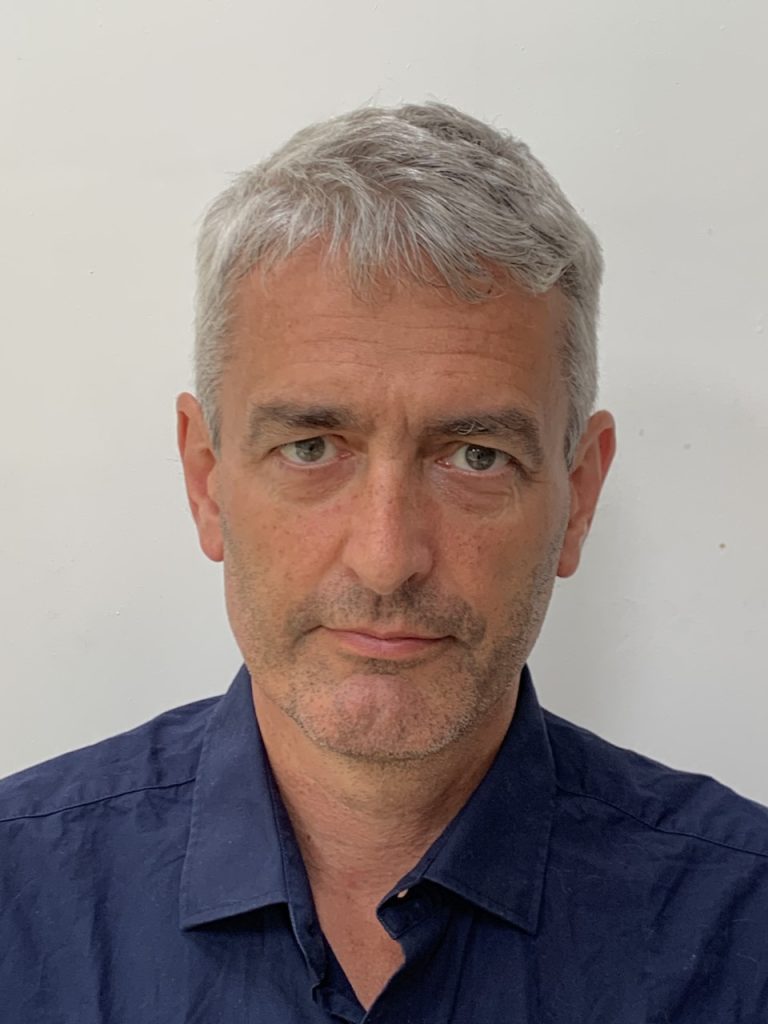
Dr. DAVID MCCULLAGH
Broadcaster Dr David McCullagh is an anchor presenter of the RTE news flagship, The Six-One News. He is a former presenter of Prime Time, and was Political Correspondent for RTÉ for 12 years. He has a PhD in politics from University College Dublin and is the author of five books on Irish history, including De Valera Rise and De Valera Rule, the acclaimed two-volume reassessment of Eamon de Valera. His most recent book, The Great Irish Politics Book, is a guide to politics for children – and for some adults.
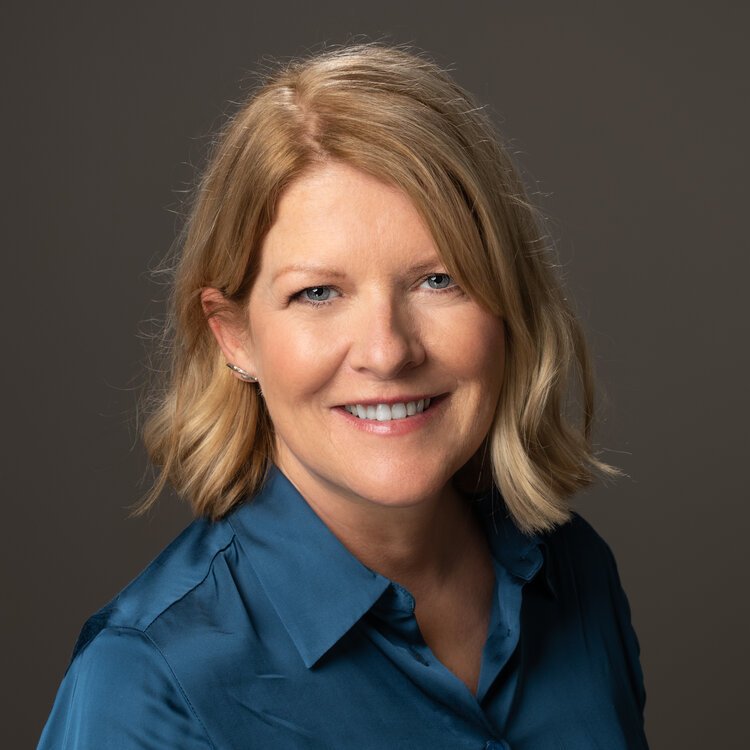
FLOR MACCARTHY
Flor MacCarthy is a journalist and author. Her bestselling book, The Presidents’ Letters,was shortlisted for Best Irish-Published Book 2021. She presents political debates on Oireachtas TV from Leinster House and the European Parliament, and is a former news reporter and television presenter with RTÉ. Flor contributes to a variety of arts and history programmes and has presented at several events for the Decade of Centenaries.
Talsk Programme
Dr. MYLES DUNGAN
The Other Civil War
New for 2023, this talk centres on the relatively unknown story of the hated land seizures of 1919-23. Free State legislation in 1923 allowed the Land Commission to compulsorily purchase landlord estates, while the Special Infantry Corps were given wide-ranging powers to clear squatters and break strikes.
What did you do in the War of Independence, Grandad?
Based on his 2021 book Four Killings, Myles Dungan examines a series of killings which took place during the War of Independence, talks about the bloody narrative of his family during the revolutionary era and offers suggestions on how to research the conflict activities of your Irish ancestors.
The Alpha Male in Irish History
The history of the revolutionary period 1912-1923 is peppered with talented, opinionated, courageous, intelligent women. So why was it that we did not have more women in positions of power and influence during this period and still fewer in the 1920s after the establishment of the Irish Free State?
Ireland’s Secret Societies
Tension between landlords and tenants is nothing new. In the 18th and 19th centuries, secret societies with names like Whiteboys, Steelboys, Terry Alts, and Houghers took direct action against their oppressors.
Forensics In The 19th Century
A companion talk to this year’s One Dublin One Book celebration of The Coroner’s Daughter by Andrew Hughes.
Dr. DAVID MCCULLAGH
“50 Years: Ireland & The EU”
New for 2023, a timely lecture on Ireland, its relations with the EU, the UK – and how 50 years of membership has changed us.
“Nothing but a bullet will stop me”: de Valera’s 1923
Éamon de Valera began 1922 as President of the Republic, the undisputed leader of Irish nationalism. By 1923, de Valera seemed to be finished – a hunted man, in danger of execution; politically sidelined, powerless to bring the Civil War to an end. The 1923 General Election saw his dramatic arrest, but it also ensured his return to political prominence.
The Long Fellow & the Big Fellow
De Valera, Michael Collins, and the rivalry that split the Irish Revolution
“Reaching for the stars” – de Valera and America
America was central to the life and the career of Éamon de Valera. It wasn’t just the land of his birth. Throughout his life, the United States was incredibly important for him. It gave him the political support which helped him defeat his rivals and the financial support without which he couldn’t have fought elections or established the Irish Press.
FLOR MACCARTHY
The Presidents’ Letters: The Visitors’ Books at Áras an Uachtaráin
85 years of signatures are contained in the huge leather-bound Visitors’ Books, revealing how Ireland has changed since the 1930s. Flor reviews correspondence from, among others, Archbishop John Charles McQuaid, JFK, Princess Grace, Walt Disney, Mother Teresa, Seamus Heaney, Paul Newman, Ronald Reagan, QEII, President Obama.
The Presidents’ Letters: The 2 Marys
Shortlisted for the An Post Irish Book Awards, The Presidents’ Letters features letters of congratulations, of resignation, of sympathy, a handwritten note from a president to a queen, a message to the moon, a fond farewell from a poet. In this illustrated talk, Flor concentrates on two ground-breaking women presidents, the Marys Robinson and McAleese.
The Dauntless Man
An illustrated and deeply personal story of Flor’s family’s links on both sides of the War of Independence:
IAN KENNEALLY – Fake News & Irish Freedom
The years 1919-1923 were a dangerous time for Irish journalists. In this talk, soon to be the basis of an RTE Radio series, Ian Kenneally discusses propaganda, censorship, fake news and violence against newspapers.
Ian is Historian in Residence with Westmeath County Council. His books include The Paper Wall: Newspapers and Propaganda in Ireland, 1919-1921 and From the Earth, a Cry: The Story of John Boyle O’Reilly.
Dr. IDA MILNE – Winning The War On Infection
In the 1910s, 70,000 Irish people a year died from infectious disease. Many of these were caused by diseases that are now preventable by vaccine and better living conditions, or have their power reduced by antibiotics.
Dr Ida Milne is European History Lecturer at Carlow College and author of Stacking the Coffins, influenza war and peace in Ireland 1918-19 – a handbook for understanding different societal impacts of the COVID-19 pandemic.
Dr. IDA MILNE – Infant Diarrhoea, The Scourge of Tenement Dublin
Infant diarrhoea was a major killer particularly in hot yeare, before refrigeration. In 1909 it was discovered that flies’ feet are sticky, and can transfer germs around the home. Sir Charles Cameron, the legendary Dublin Medical Officer, in 1913 during a particularly bad outbreak, offered a bounty on paper bags of flies, which he paid to children in the tenements.
JOHN DORNEY – The IRA War On Entertainments, 1923
In March 1923 the anti-Treaty IRA, in response to the ongoing execution of their prisoners, anti-Treaty IRA Chief of Staff Liam Lynch declared a ban on public entertainments including sports, theatre and cinema during a period of ‘national mourning’. This resulted in a concerted campaign which involved stopping sports and burning theatres and cinemas, only ended by the close of the Civil War.
JOHN DORNEY – The Ending of the Irish Civil War
Historian John Dorney explains how the Civil War ended with the defeat of anti-Treatyites, the death of IRA Chief of Staff Liam Lynch in April 1923 in the Knockmealdown mountains and Frank Aiken’s ‘Dump Arms Order’ of May 1923.
JOHN DORNEY – The Big House and the Irish Civil War
The ‘Big House’ – the country mansion of the Anglo-Irish landed class – was a target of republicans throughout the Irish revolution of 1919-23. A total of 275 were burned out, blown up or destroyed. how radical nationalists, in the anti-Treaty IRA, took the opportunity to sweep away the symbols of the old order.
JOHN DORNEY – Irish Civil War Executions
While the Civil War’s main combat phase was in the summer and autumn of 1922, most of the Government’s executions by firing squad – 62 out of 81, took place in 1923. This talk will examine why, how and where these executions took place – and their consequences on an independent Ireland.
JOHN DORNEY – Atrocities and Reprisals in the Irish Civil War 1923
The Irish Civil War in its closing months – January to May 1923, degenerated in many areas into a series of local vendettas. This went furthest in Kerry, with the massacre of prisoners in March 1923, but also applied in places such as Dublin, Wexford and elsewhere. This talk will examine atrocity and reprisal in the latter stages of the War in 1923.
Dr. JONATHAN CREASY – Irish Poetry, Prose and Song of the 1920s
A lecture, with music, on the poetry, prose and song of our grandparents’ time.
Dr. Jonathan Creasy, PhD is a writer, broadcaster, and educator based in Dublin. He is a reporter for The History Show on RTÉ Radio 1 and producer/presenter of The Writers’ Room on Dublin City FM.
LIZ GILLIS – Divided Nation: The Irish Civil War 1922 – 1923
No community was left unscathed by the Irish Civil War. It was a war of untold brutality, dividing families and friends.
Historian Liz Gillis is the author of numerous books on Ireland’s early 20th century revolutionary period, and Historian in Residence at South Dublin County Council.
LIZ GILLIS – Treaty Women
A lecture on the women who worked with the delegates in London during the Treaty talks.
LIZ GILLIS – Children and the War of Independence
The story of the War of Independence has been told mainly from the perspective of adults, but children were as much a part of the story. How did the conflict affect them? They were witnesses, participants and victims.
BI-LINGUAL TALKS
Dr. PÁDRAIG O RUAIRC – Irish Is A Foreign Language
A bi-lingual talk, or entirely in English, about the hidden history of attempts to both kill off and save the Irish language during the Irish Revolution. Hear the stories of Irish born RIC Constables arresting Englishmen for speaking Irish, Dublin Jews and Belfast Protestant’s learning Irish, the British Army bombing the shops of businessmen who advertised “as Gaeilge” and the opposition of the Church to the Irish language in schools.
Dr. Pádraig Óg Ó Ruairc holds a PhD in History and a Certificate in Modern Irish from the University of Limerick.
Dr. PÁDRAIG O RUAIRC – Where the bodies are… The “Disappeared” of the Irish Revolution 1920 -1923
The IRA’s Intelligence War, the “disappearance” of spies, informers and British soldiers, and the soldier’s body our speaker found buried in a bog – 97 years later. Dr. Pádraig Óg Ó Ruairc explores forced disappearances during the War of Independence when both the British Crown forces and IRA abducted, executed and secretly buried civilians and military opponents. The phenomenon continued during the Civil War when the Anti-Treaty IRA disappeared suspected spies.
Dr. PÁDRAIG O RUAIRC – Straw-boys, May-boys, Mummers and Mischief
Pádraig O Ruairc looks at how annual festivals, holidays and weddings were traditionally celebrated in Ireland with costumed performers, poetry, music and dance.
Dr. TOMÁS MAC CONMARA – “What day did we reach the crossroads?” The Irish Civil War and the Memory of a Divided Landscape
A bi-lingual lecture on the memory of the Civil War – dynamics, influences, patterns of commemorations, with some unique accompanying audio material.
Tomás Mac Conmara is an award-winning oral historian and author who has published several books on the Irish revolutionary period, including his 20-year memory study, The Time of The Tans and most recently, The Scariff Martyrs.
Lectures are offered as a variety of in-person presentations, Zoom talks or pre-recorded lectures…
Just for Kids
This year, for the first time, Pegasus is concentrating offers a series of interactive and illustrated talks aimed specifically at schoolchildren, and presented by leading authors and broadcasters…
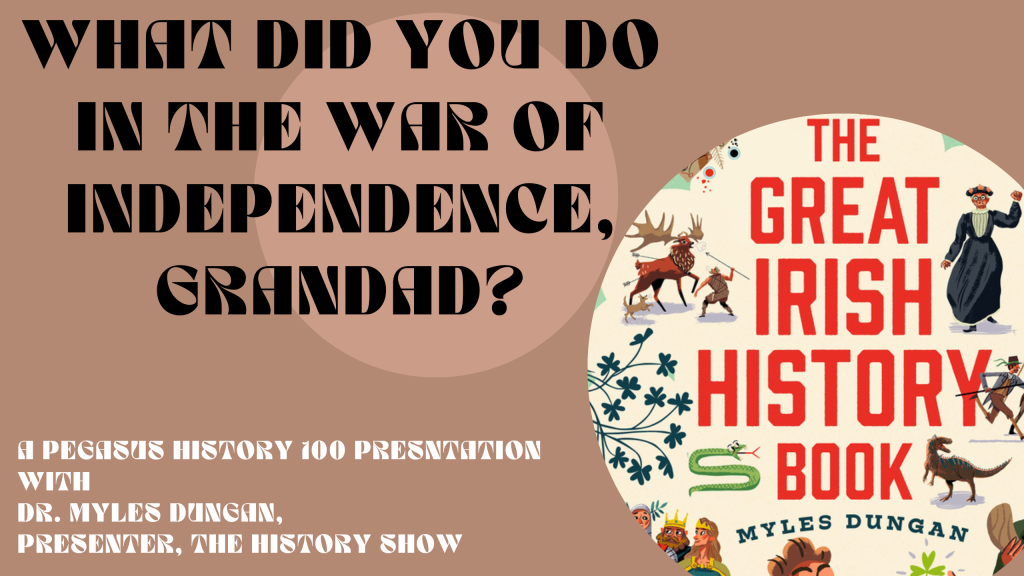
Great Irish History – Myles Dungan
Myles, a former teacher, RTÉ presenter and the author of The Great Irish History Book, a Christmas 2022 bestseller, guides you through the history of our amazing island. Take an historical trip back in time to visit the ancient Celts, sail away on a famine ship or join the 1916 rebels in the GPO. Discover leaders, thinkers and fighters and learn how our ancestors lived and worked in forts, castles and cottages. A short quiz ends off this entertaining talk.
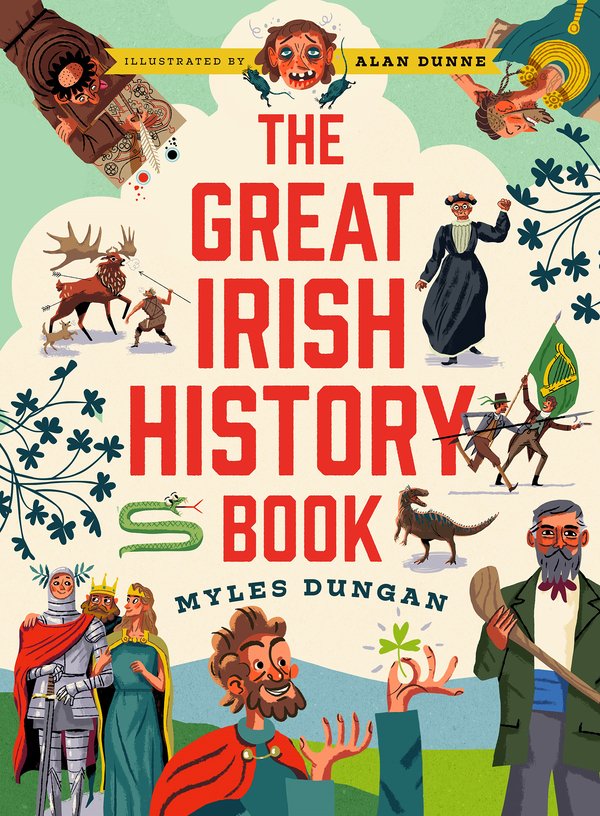
Stories of the Revolution – Flor MacCarthy
This illustrated talk showcases stories collected, written and illustrated by more than 800 children from schools around west Cork. Inspired by the 1937 schools folklore programme, the children interviewed elders in their families, neighbourhood and wider community about the revolutionary era, finding…
- “When the IRA needed to transport messages or guns, they used children. “The children went in with missions, they came out with guns”.
- “The Blackened Hands (sic) used to barge in through the door and demand food from my great grandmother. She had to supply them with food, if she didn’t they would shoot her”.
- “Our grandad’s Aunty Briggy needed glasses from a young age. They used to say that her eyesight was strained looking out for the black and tans”.
- “My great grandad learned to knit while he was on the run which was unusual for a man but must have kept him warm and busy”.
- “My great great grandfather was in the Free State Army and his wife was an IRA supporter. She wouldn’t let him into the house without taking his uniform off first”.
Great Irish Politics – David McCullagh
Political buff Dave McCullagh is your guide to all the things that make our country work. Why do we have a president and a Taoiseach? What is the Seanad and why can only some citizens vote in its elections? Who makes the rules for Ireland and how are they enforced? And what do we do if we want to change them? Schoolchildren will learn their left from their right, politically speaking; they’ll learn the difference between dictatorship and democracy; and they’ll know how our elections work – which is more than most adults do!
Children and the President of Ireland – Flor MacCarthy
This tried and tested talk is aimed, primarily, at 11/12 year-olds, and includes…
- The President of Ireland – Q&A. What do we know about each of the nine presidents and their role?
- Áras an Uachtaráin – Flor takes her audience behind the scenes at the house, the former Viceregal Lodge including details of how it was tilled, planted and bombed during WWII, and the trees planted by world figures.
- The Letters – official correspondence from the President… from commuting a death sentence to sending Centenarian bounty letters and cheques. Flor also discusses letters to/from children, who wrote to the presidents about everything from the abolition of the death penalty to the abolition of homework!
- The future – when the children reach 18 and are eligible to vote, what sort of president would they like to represent them?
St. Brigid’s Day – Pádraig O Ruairc
St. Brigid’s Day, February 2023, will be the first time Brigid’s Day will become a Public Bank Holiday. Dr. Pádraig Óg Ó Ruairc explains the history behind various Brigid’s Day traditions, Brigid’s Crosses and Mumming – in particular the “Biddy Boys”.
Workshops
Pegasus also offers demonstrations and workshops for children or adults in Irish music and traditional crafts such as strawboy costumes, St. Bridget’s crosses, mummers masks, bodhrans and bones. Learn how to make a traditional Irish “Strawboy” mask, or a St. Bridget’s cross, see examples of mumming costumes and learn to play traditional Irish musical instruments from the experts.
The Pegasus History Roadshow series has toured since 2010, visiting festivals, historic houses and county libraries with The Fighting Irish (2010-), The Great War Roadshow (2014/15), Paths To Freedom (2016/17), Mná na hÉireann (2018); De Valera & The First Dáil (2019) & 1920: Year Of Terror (2020).
